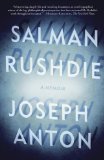Summary | Excerpt | Reviews | Beyond the Book | Readalikes | Genres & Themes | Author Bio

Critics' Opinion:
Readers' Opinion:
First Published:
Sep 2012, 656 pages
Paperback:
Sep 2013, 656 pages
 Book Reviewed by:
Book Reviewed by:
Amy Reading
Buy This Book
When the first blackbird comes down to roost on the climbing frame it seems individual, particular, specific. It is not necessary to deduce a general theory, a wider scheme of things, from its presence. Later, after the plague begins, it's easy
for people to see the first blackbird as a harbinger. But when it lands on the climbing frame it's just one bird.
In the years to come he will dream about this scene, understanding that hisstory is a sort of prologue: the tale of the moment when the first blackbird lands. When it begins it's just about him; it's individual, particular, specific. Nobody feels inclined to draw any conclusions from it. It will be a dozen years and more
before the story grows until it fills the sky, like the Archangel Gabriel standing upon the horizon, like a pair of planes flying into tall buildings, like the plague of murderous birds in Alfred Hitchcock's great film.
At the CBS offices he was the big news story of the day. People in
the newsroom and on various monitors were already using the word
that would soon be hung around his neck like a millstone. They used
the word as if it were a synonym for "death sentence" and he wanted
to argue, pedantically, that that was not what the word meant. But
from this day forward it would mean that for most people in the world.
And for him.
Fatwa.
"I inform the proud Muslim people of the world that the author
of the 'Satanic Verses' book, which is against Islam, the Prophet and
the Qur'an, and all those involved in its publication who were aware
of its content, are sentenced to death. I ask all the Muslims to execute
them wherever they find them." Somebody gave him a printout of the
text as he was escorted toward the studio for his interview. Again, his
old self wanted to argue, this time with the word "sentence." This was
not a sentence handed down by any court he recognized, or which had
any jurisdiction over him. It was the edict of a cruel and dying old
man. But he also knew that his old self's habits were of no use anymore.
He was a new self now. He was the person in the eye of the
storm, no longer the Salman his friends knew but the Rushdie who was
the author of Satanic Verses, a title subtly distorted by the omission of
the initial The. The Satanic Verses was a novel. Satanic Verses were verses
that were satanic, and he was their satanic author, "Satan Rushdy," the
horned creature on the placards carried by demonstrators down the
streets of a faraway city, the hanged man with protruding red tongue
in the crude cartoons they bore. Hang Satan Rushdy. How easy it was
to erase a man's past and to construct a new version of him, an overwhelming
version, against which it seemed impossible to fight.
King Charles I had denied the legitimacy of the sentence handed
down against him. That hadn't stopped Oliver Cromwell from having
him beheaded.
He was no king. He was the author of a book.
He looked at the journalists looking at him and he wondered if this
was how people looked at men being taken to the gallows or the electric
chair or the guillotine. One foreign correspondent came up to be
friendly. He asked this man what he should think about what Khomeini
had said. How seriously should he take it? Was it just a rhetorical
flourish or something genuinely dangerous?
"Oh, don't worry too much," the journalist said. "Khomeini sentences
the president of the United States to death every Friday afternoon."
On air, when he was asked how he responded to the threat, he
said, "I wish I'd written a more critical book." He was proud, then
and always, that he had said this. It was the truth. He did not feel his
book was especially critical of Islam, but, as he said on American television
that morning, a religion whose leaders behaved in this way
could probably do with a little criticism.
Excerpted from Joseph Anton by Salman Rushdie. Copyright © 2012 by Salman Rushdie. Excerpted by permission of Random House. All rights reserved. No part of this excerpt may be reproduced or reprinted without permission in writing from the publisher.





The House on Biscayne Bay
by Chanel Cleeton
As death stalks a gothic mansion in Miami, the lives of two women intertwine as the past and present collide.

The Flower Sisters
by Michelle Collins Anderson
From the new Fannie Flagg of the Ozarks, a richly-woven story of family, forgiveness, and reinvention.

The Funeral Cryer by Wenyan Lu
Debut novelist Wenyan Lu brings us this witty yet profound story about one woman's midlife reawakening in contemporary rural China.
Your guide toexceptional books
BookBrowse seeks out and recommends the best in contemporary fiction and nonfiction—books that not only engage and entertain but also deepen our understanding of ourselves and the world around us.